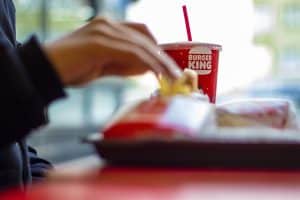
You see, a group of Burger King consumers decided they had had enough back in March 2020 and sued the massive fast-food company. Their beef (pun intended, 100%) was that Burger King had greatly overstated the dimensions of their well-known Whopper for commercials. The plaintiffs argued that the marketing made the Whopper look almost twice as large as it actually is, and that was the main claim that started this Burger King Whopper Lawsuit. Imagine anticipating a large burger and getting one roughly 35% smaller, that doesn’t sound good at all!
What’s The Real Legal Matter?
The people behind this Burger King Whopper Lawsuit made some quite good arguments, we must say that at least. Burger King’s commercials, they noted, showed Whoppers with large beef patties and toppings spilling out of the bun, giving the burger a heavy, fulfilling look. Reality, though, was completely different. And that’s the very reason why consumers from states including Florida, New York, Illinois, and Massachusetts all joined in claiming they wouldn’t have paid for the Whopper if they had known it was far smaller than what the commercials claimed.
Burger King’s Side of the Story
Burger King did not simply watch and accept these allegations and claims. They kinda defended their commercials, pointing out that it’s really common in the food business to have products look as appetizing as possible. They maintained that their commercials are supposed to be visually appealing and that they are not exactly duplicates of what you get. All in all, Burger King basically stated that the grilled patties depicted in their commercials are exactly the ones you find in their outlets.
So, What the Judge Decided?
U.S. District Judge Roy Altman, who had a conflicting view of the matter, ended up handling the case. So, how did it go? Well, he let other claims proceed while throwing out portions of the complaint on Burger King’s TV and web advertising. The court specifically left the allegations of unjust enrichment, breach of contract, and careless misrepresentation to run. This simply means that the lawsuit will go to trial, where a jury will determine whether consumers’ choices would be influenced by the gap between the claimed and real Whopper proportions. Burger King, meanwhile, was standing strong that their advertising was not deceptive and the plaintiffs’ charges were unfounded.
Why It Matters for Fast-Food Lovers Everywhere
Well, this very lawsuit against Burger King is not occurring in a void, it matters to all of us fast food lovers, no matter where in the world you live. It fits with a larger trend of fast-food restaurants under fire for their advertising strategies. Similar cases have come against McDonald’s, Wendy’s, and Taco Bell. For instance, McDonald’s and Wendy’s have been sued for presenting their burgers in commercials as larger than in actual life. And how can we forget that Taco Bell was sued for allegedly skimping on the ingredients in their pizzas and wraps relative to their marketing? These examples draw attention to the rising fast-food industry’s deceptive advertising issue and the necessity of more marketing honesty, you know?

